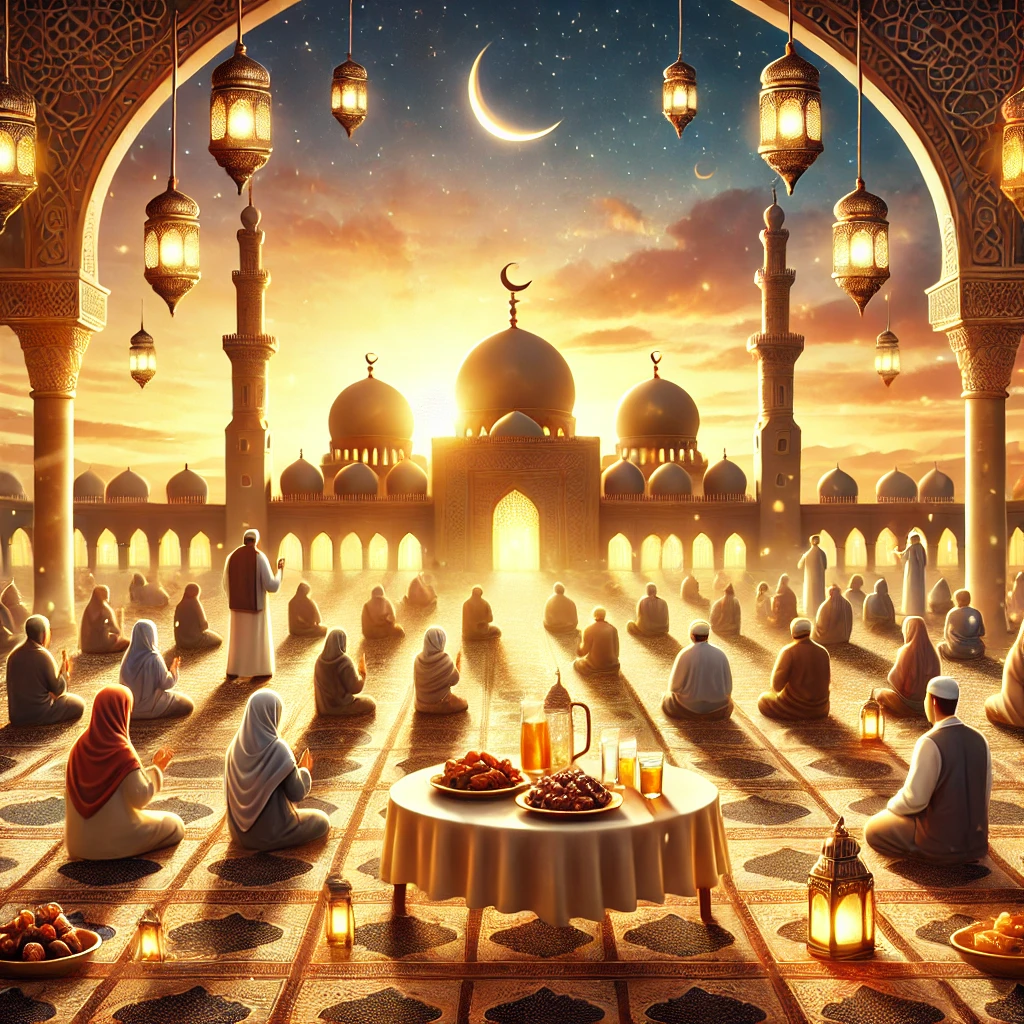Ramadan is the holiest month in Islam, observed by Muslims worldwide through fasting, prayer, and spiritual reflection. It is a time of self-discipline, increased devotion, and charitable acts. But what exactly do Muslims do during Ramadan? Let’s explore the key practices of this sacred month.

Fasting from Dawn to Dusk
The Importance of Fasting in Ramadan
Fasting (Sawm) is one of the Five Pillars of Islam. Muslims fast from sunrise (Suhoor) to sunset (Iftar), abstaining from food, drink, and other physical needs.
Suhoor – The Pre-Dawn Meal
Before dawn, Muslims wake up for Suhoor, a pre-fasting meal that provides energy for the day. It often includes nutritious foods like dates, fruits, dairy, and whole grains.
Iftar – Breaking the Fast
At sunset, Muslims break their fast with Iftar, traditionally starting with dates and water, followed by a wholesome meal with family and friends.
Increased Worship and Spiritual Reflection
Five Daily Prayers and Taraweeh
Muslims continue their five daily prayers and also perform Taraweeh, special nightly prayers held in mosques during Ramadan.
Reading and Reciting the Quran
Many Muslims aim to complete reading the Quran during Ramadan, as it is believed to be the month when the Quran was first revealed.
Seeking Forgiveness and Making Duas (Supplications)
Muslims use this month for self-reflection, seeking forgiveness, and making duas (prayers) for themselves and others.
Acts of Charity and Community Involvement
Giving Zakat and Sadaqah (Charity)
Ramadan encourages generosity. Muslims give Zakat (mandatory charity) and Sadaqah (voluntary charity) to help those in need.
Strengthening Community Bonds
Muslims gather for Iftar meals, pray together, and support each other, fostering unity and togetherness.
Self-Discipline and Good Conduct
Ramadan teaches self-control, encouraging Muslims to avoid negative behaviors like gossip, anger, and arguments. Instead, they focus on kindness, patience, and gratitude.
Conclusion
Ramadan is more than just fasting—it is a month of spiritual growth, worship, and community service. By engaging in prayer, charity, and self-reflection, Muslims strengthen their faith and improve their character. As the holy month approaches, these practices help create a deeper connection with God and with others.
Read More Here.
